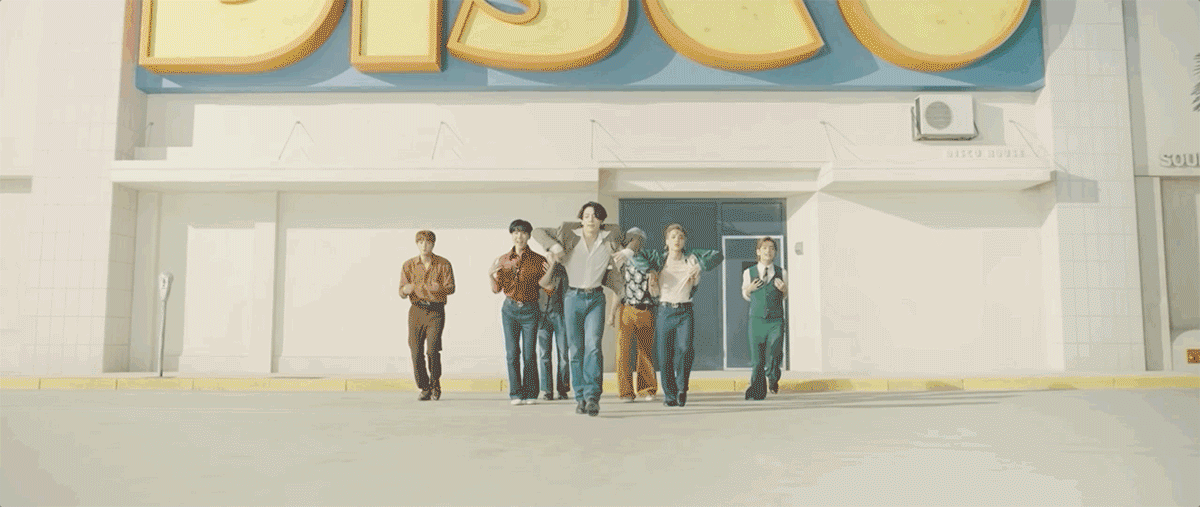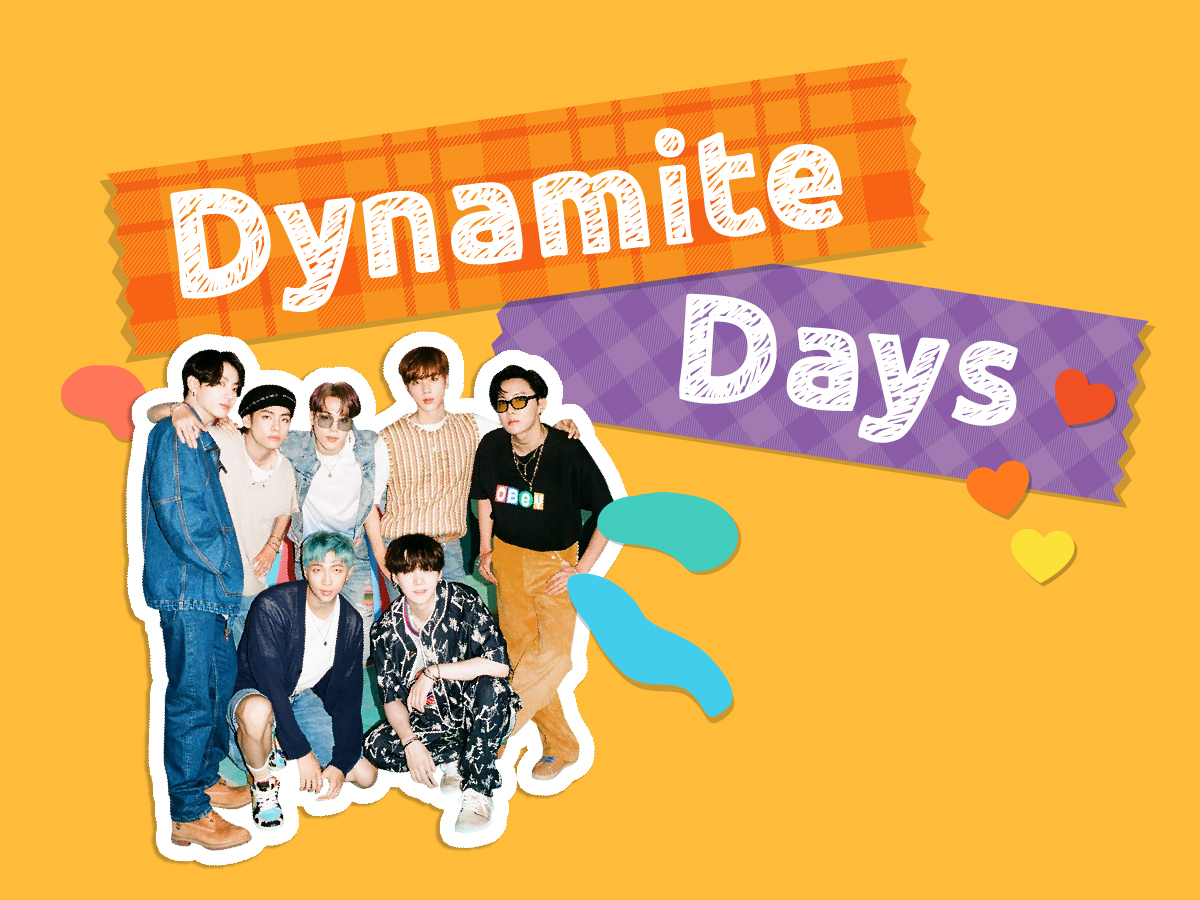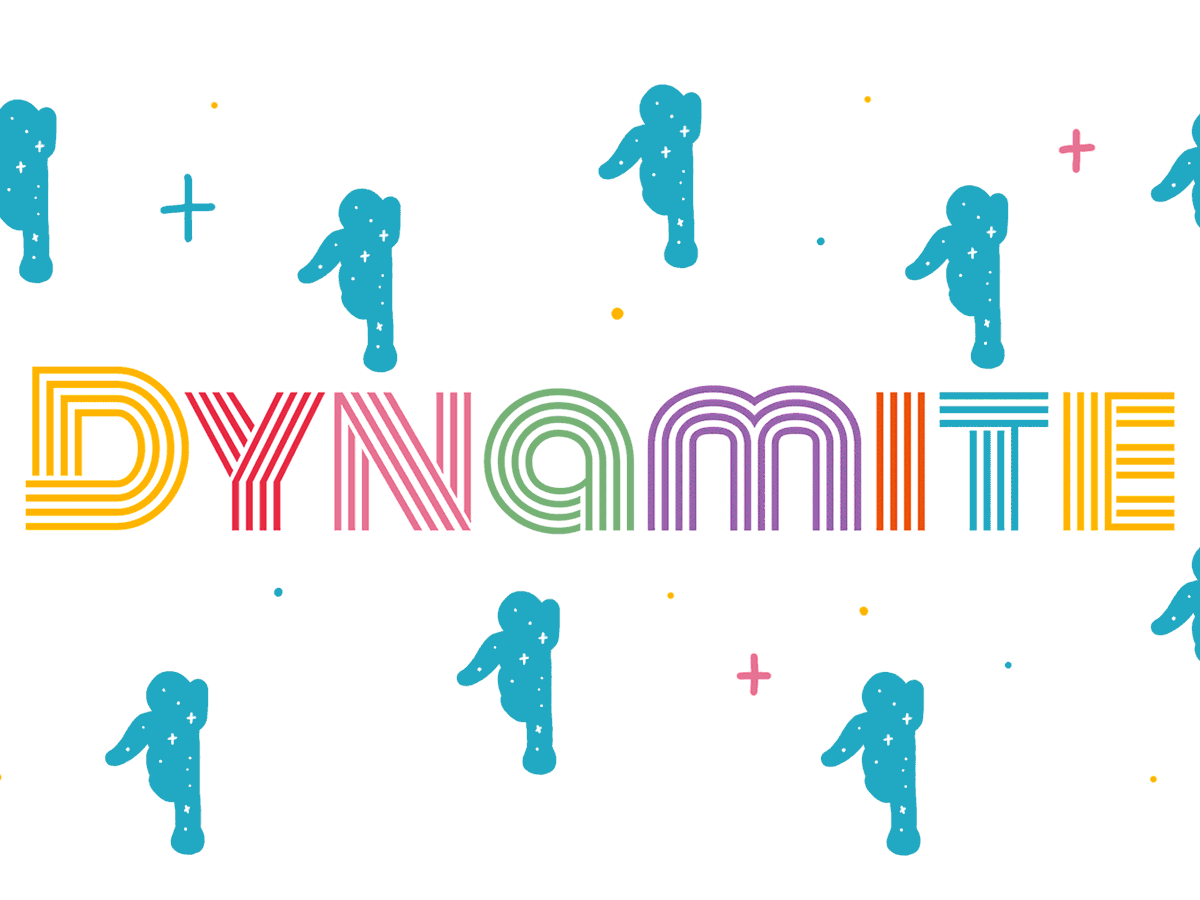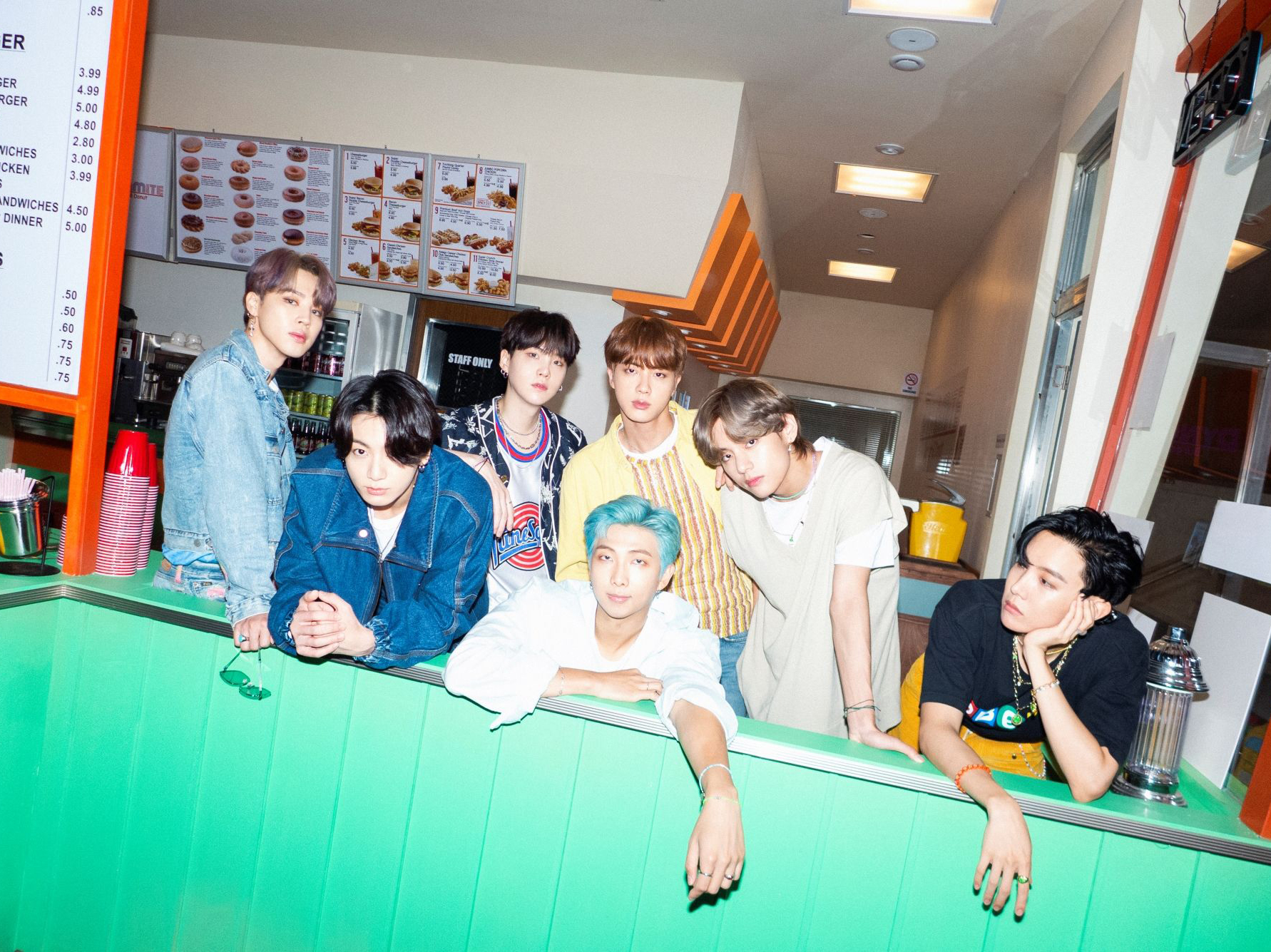
FEATURE
BTS & TOMORROW X TOGETHER’s Disco
Big Hit + Disco spawns a new meaning
2020.11.04
Korean pop culture, in some instances, exhausts certain music genres only at the surface level – through fashion and gestures. Heavy metal and disco are the biggest casualties. But there is a difference. Heavy metal has struggled to find a foothold, often becoming a target of ridicule by the media. K-POP’s disco, on the other hand, is a style that keeps turning up at the right time. In most cases, “retro” as a slogan leads the charge and disco fleshes out the details. Yet, as this legacy from the 1970s to1990s gets invoked and rehashed time and again, calling it “retro” feels awkward now. If disco flops now, it is due to the inability to spot this awkwardness. Coincidentally, when “retro” alone is not enough to paint the full picture, K-POP has grown into a major current in the global music industry – a reason we can view Big Hit Entertainment (or “Big Hit”)’s disco in the likes of BTS’ “Dynamite” through TOMORROW X TOGETHER’s “Blue Hour” from a slightly different context.
If disco’s history is summed up in a few milestones, ranging from Saturday Night Fever to “Disco Demolition Night,” the genre seems to have, after popular success, moved through stages of self-duplication; at times loathed by specific groups along the way, then meeting its ultimate demise. To the genre’s pioneers disco is a paean to diversity and minority rights and a means of resistance. In the early 1970s, DJs were mixing American funk, Latin groove, and European electronica, while flooding the dance floor with the message urging love for one another. Dance stage was no longer just for couples but a space where hundreds of people can have fun together. When disco captured values transcending gender, race and class into what seems like harmless dance tracks at first, “Disco Demolition Night” turned out to be a symbolic event that was maybe destiny, a former rock radio DJ leading a mass torching of disco albums in a baseball stadium. The club scene survived after disco; yet the task of shedding light on what opportunities disco extended to black, Latino, Italian, woman and gay artists fell to those outside the clubs.
It’s no coincidence that amidst today’s issues of hate and resistance against diverse self-identities, people are not just hoping for the return of disco but demanding it as a necessity. In times of explosive race and class conflicts, disco is not “retro” but ongoing. And if for pop music, success in the U.S. means success in the global market, the road to success was much too narrow for Asian boy bands. K-POP boy band is a stark contrast to the typical manhood American culture looks for. But BTS has broadened the road, and its significance runs deeper than adding an extra option - in this case, Asian - to the diversity spectrum. In a country with bias and discrimination against boy bands, minorities and alternative masculinity, BTS’ first English language single “Dynamite” being produced as disco, is very meaningful from both the history of U.S. pop music as well as the social context – especially so when the song depicts the joy of vibrant daily life in thisday and age. TOMORROW X TOGETHER’s “Blue Hour” utilizes disco to represent the boy band’s fresh concept; the song sings about a special moment of happiness in a world that could be either real or imaginary. This song gains a new context considering that the other songs, “We Lost the Summer,” or “Way Home” also included in the album minisode1 : Blue Hour reflect the teenagers’ changed daily lives due to COVID-19. Disco plays when a teenager robbed of his ordinary walk on the street by COVID-19, sings about his fleeting happiness. It is a variation of disco in the hands of a boy band, and the answer to why disco can be another form of festival music in this era.
If disco’s history is summed up in a few milestones, ranging from Saturday Night Fever to “Disco Demolition Night,” the genre seems to have, after popular success, moved through stages of self-duplication; at times loathed by specific groups along the way, then meeting its ultimate demise. To the genre’s pioneers disco is a paean to diversity and minority rights and a means of resistance. In the early 1970s, DJs were mixing American funk, Latin groove, and European electronica, while flooding the dance floor with the message urging love for one another. Dance stage was no longer just for couples but a space where hundreds of people can have fun together. When disco captured values transcending gender, race and class into what seems like harmless dance tracks at first, “Disco Demolition Night” turned out to be a symbolic event that was maybe destiny, a former rock radio DJ leading a mass torching of disco albums in a baseball stadium. The club scene survived after disco; yet the task of shedding light on what opportunities disco extended to black, Latino, Italian, woman and gay artists fell to those outside the clubs.
It’s no coincidence that amidst today’s issues of hate and resistance against diverse self-identities, people are not just hoping for the return of disco but demanding it as a necessity. In times of explosive race and class conflicts, disco is not “retro” but ongoing. And if for pop music, success in the U.S. means success in the global market, the road to success was much too narrow for Asian boy bands. K-POP boy band is a stark contrast to the typical manhood American culture looks for. But BTS has broadened the road, and its significance runs deeper than adding an extra option - in this case, Asian - to the diversity spectrum. In a country with bias and discrimination against boy bands, minorities and alternative masculinity, BTS’ first English language single “Dynamite” being produced as disco, is very meaningful from both the history of U.S. pop music as well as the social context – especially so when the song depicts the joy of vibrant daily life in thisday and age. TOMORROW X TOGETHER’s “Blue Hour” utilizes disco to represent the boy band’s fresh concept; the song sings about a special moment of happiness in a world that could be either real or imaginary. This song gains a new context considering that the other songs, “We Lost the Summer,” or “Way Home” also included in the album minisode1 : Blue Hour reflect the teenagers’ changed daily lives due to COVID-19. Disco plays when a teenager robbed of his ordinary walk on the street by COVID-19, sings about his fleeting happiness. It is a variation of disco in the hands of a boy band, and the answer to why disco can be another form of festival music in this era.
It is right to interpret BTS’ positivity and TOMORROW X TOGETHER’s freshness as a counterbalance to, in part, explicit features of American pop music. But if that’s all there is to it, then it would mean wholesomeness without any “parental advisory” concerns is the driving force of their popularity. Simply put, people could be seeking feel-good music in this terrible time of pandemic. According to what Ian Kirkpatrick, producer of “Don’t Start Now” by Dua Lipa, revealed to Nylon, before making their hit song, he saw with his collaborators, Caroline Ailin and Emily Warren, a bunch of guests (of course white people) in plaid shirts at a bar in an American suburb dancing to “YMCA.” They confessed to having no prior vision for disco – which is not humility speaking, but rather, confidence of pop artists who cast a bias-free look at the calls of the era. Now is a time for disco.
There is no telling how intentional Big Hit’s disco is, except to say that its lively fun holds a much fresher and richer meaning than the older K-POP. This disco harks back to the night 30 years ago, when “white men” set disco in flames to reclaim their dominance.
There is no telling how intentional Big Hit’s disco is, except to say that its lively fun holds a much fresher and richer meaning than the older K-POP. This disco harks back to the night 30 years ago, when “white men” set disco in flames to reclaim their dominance.
Article. Seongdeok Seo(Music Critic)
Photo Credit. BIGHIT MUSIC
Copyright © Weverse Magazine. All rights reserved.
Unauthorized reproduction and distribution prohibited.
Unauthorized reproduction and distribution prohibited.
Read More
- When the Walls Fell2020.10.19


- Why Dynamite is Phenomenal2020.09.21
